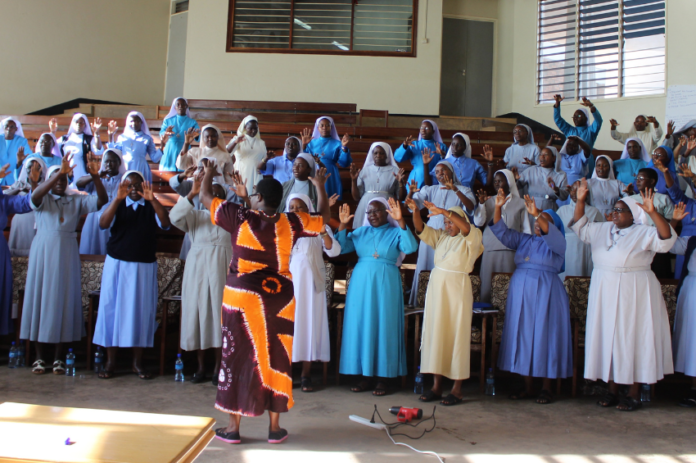In a recent Facebook discussion, concerns were raised about the living conditions of Catholic nuns within the church, prompting a call for the Vatican to review and address the issue. The conversation touched upon the disparities between male priests and female nuns, particularly regarding their standards of living.
The conversation began when Linus Obogo stated, “The Vatican must look into conditions of its Rev Sisters. They’re abject. Male priests live in the lap of luxury. Sisters aren’t.” This sparked a discussion on the varying lifestyles among members of the Catholic clergy.
Aloy Emeka Attah contributed to the conversation by highlighting that it depends on the specific congregation and whether they have the approval of Rome or the seal of their diocese. He suggested that some sisters belong to religious organizations without official recognition.
However, the discussion soon delved into the complex issue of nuns’ finances and living arrangements. One participant noted, “Don’t deceive yourself Sir, Sisters have a lot of money but they don’t show.” This statement was followed by an explanation of the communal lifestyle many sisters adopt.
The principle of community life in convents dictates that everything a nun owns, including her car, house, or money in her account, belongs to the entire community. This approach to wealth is also applied to religious priests. This communal living arrangement often leads to nuns hiding their wealth, presenting themselves as more modest than they may be in reality.
The conversation offered a contrasting view of diocesan priests who are known to display their wealth through clothing, vehicles, home construction, and business ventures. The key difference lies in ownership; diocesan priests possess what they own individually, while nuns share everything with their religious community.
The Facebook discussion also touched on the educational backgrounds of nuns, with Inok Solomon noting that many are well-educated, including medical doctors, PhD-level educators, and qualified caregivers. He acknowledged that while some nuns join the clergy with limited education, they often continue their studies.
One common thread throughout the conversation was the assertion that nuns lead more communal lives in clustered environments, whereas male counterparts often enjoy greater freedom and autonomy.
The discussion raised concerns about gender disparities and suggested that the church should revisit and possibly reform the living conditions and financial arrangements for nuns. It is hoped that these conversations will lead to greater transparency and equity within the Catholic Church.
As calls for a Vatican review of these issues gain momentum, the conversation underscores the ongoing discussion of gender equity within religious institutions.










